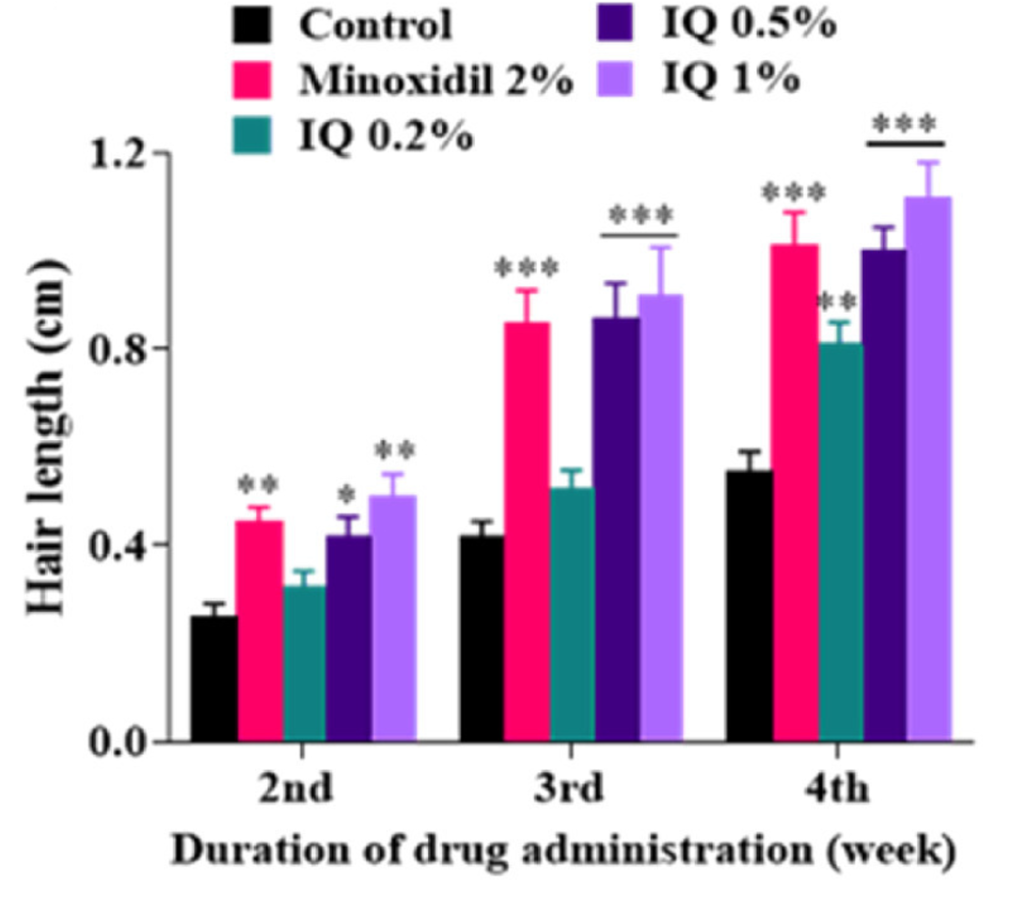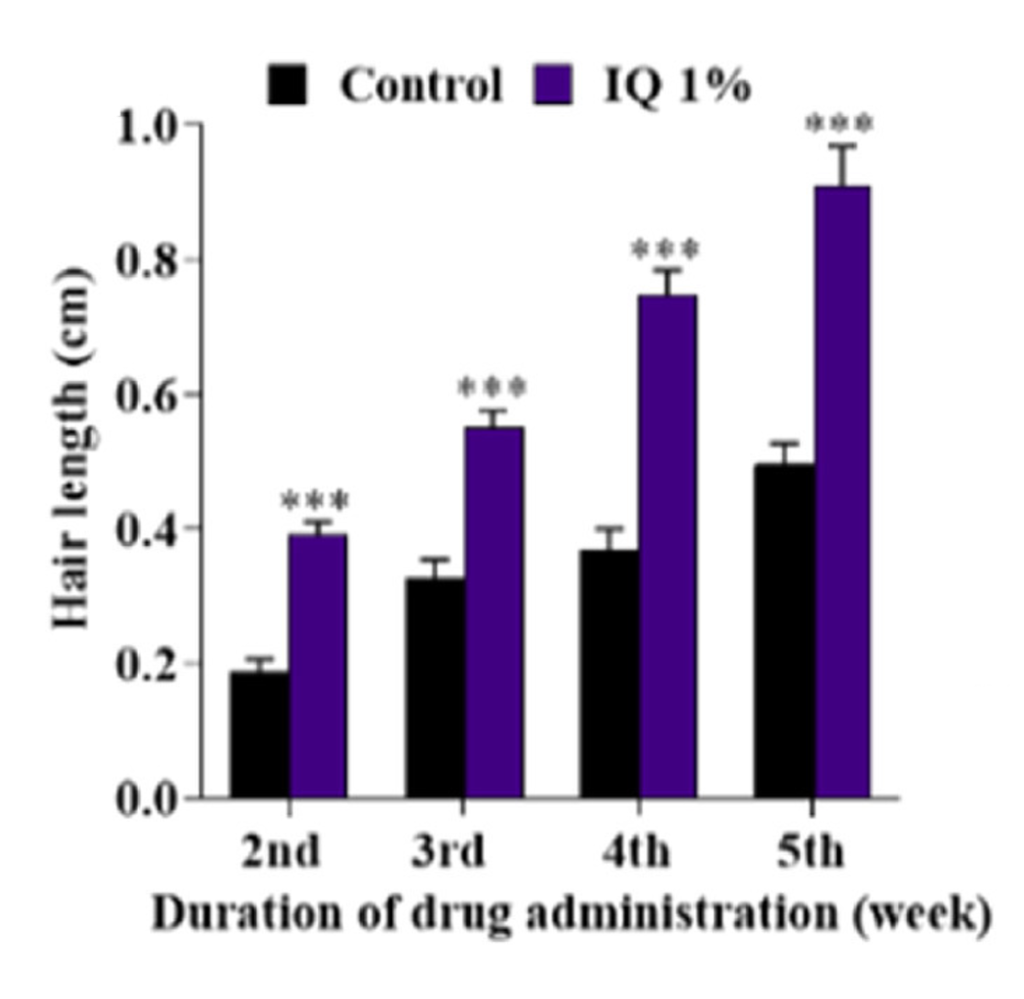New Hair Regrowth Agent Isoquercitrin Targets Hallmarks of Aging
The plant-based compound isoquercitrin promotes hair regrowth by targeting hallmarks of aging — biological drivers of aging — in rats.
Highlights:
- Isoquercitrin stimulates hair growth by inhibiting the nutrient-sensing molecule mTOR and promoting cellular waste removal in young rats.
- Isoquercitrin also stimulates hair growth in middle-aged rats.
What if age-related hair loss could be reversed? This is what researchers from Zhejiang University in China sought to discover by examining isoquercitrin, a compound found in tea leaves, fruits, vegetables, and other plant-based foods. The researchers found that isoquercitrin protects against hair loss in both young and middle-aged rats. Moreover, they showed that isoquercitrin targets several hallmarks of aging, including deregulated nutrient sensing and impaired autophagy.
Isoquercitrin Stimulates Hair Growth by Inhibiting mTOR and Promoting Autophagy
To study the effects of topical isoquercitrin on hair regrowth, the researchers removed a patch of hair from the backs of rats that were 7 weeks old, roughly equivalent to 16 human years. After four weeks of isoquercitrin treatment, the young rats’ hair grew back faster and longer than young rats not given isoquercitrin. These results were similar in rats treated with the active ingredient in the over-the-counter hair regrowth medication Rogaine (2% minoxidil).

The researchers also showed that isoquercitrin targets deregulated nutrient sensing and impaired autophagy. Nutrient sensors are proteins in our cells that detect the concentration of specific nutrients to determine how our cells behave. However, the deregulation of nutrient sensors like mTOR (mammalian target of rapamycin) is a hallmark of aging. This is why inhibiting mTOR with the drug rapamycin prolongs the lifespan of mice.
Impaired autophagy is also a hallmark of aging and may contribute to neurodegenerative diseases. Autophagy is the process our cells use to get rid of cellular waste, so when autophagy is impaired, waste builds up and renders our cells dysfunctional. In the brain, impaired autophagy can contribute to the buildup of amyloid plaques, a key pathological feature of Alzheimer’s disease.
The researchers showed that isoquercitrin inhibits mTOR by directly interacting with and activating another nutrient sensor called AMPK. The researcher’s findings suggest that, by activating AMPK, isoquercitrin inhibits mTOR and promotes autophagy. These results suggest that isoquercitrin rejuvenates hair follicles by promoting autophagy, ultimately leading to hair regrowth.
Isoquercitrin Stimulates Hair Growth in Middle-Aged Rats
Since skin aging may affect hair follicles, the researchers tested the potential effects of isoquercitrin on rats aged one year, roughly equivalent to 44 human years. Similar to the younger rats, the middle-aged rats exhibited faster hair growth rates than untreated middle-aged rats. Furthermore, as with the younger rats, the middle-aged rats exhibited longer hair when treated with isoquercitrin. These findings suggest that isoquercitrin could counteract age-related hair loss.

Can Isoquercitrin Reverse Hair Loss in Humans?
Isoquercitrin is similar to quercetin but has higher bioavailability. Supplementation with quercetin has been shown to promote hair regeneration in mice and prevent the onset of alopecia areata, an autoimmune disease that causes hair loss. These findings suggest that isoquercitrin and quercetin, both plant-based compounds classified as polyphenols, may reverse hair loss in humans. However, there are currently no clinical trials lined up to test the effects of either polyphenol on hair growth. More animal research is likely needed to prompt scientists to pursue such trials.

